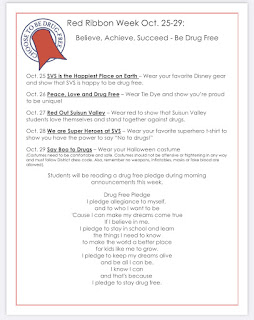NO EXCUSES UNIVERSITY – DATA ANALYSIS
Culture of Universal Achievement
Collaboration
Standards Alignment
Assessment Plan
Data Analysis
Interventions
“It is one thing to have a sophisticated system of regular, formative assessments, but if that assessment data is not collected, disaggregated and reported in a timely and user-friendly manner, it becomes almost unusable. We believe data must be easily accessible, openly shared, and deliberately arranged.”
There are three main components to data management:
#11. Easily accessible
# 2. Openly shared
# 3. Deliberately arranged
Easily accessible: We are so fortunate to have two data systems that provide us with on-the-spot data about our students, our schools, and our district. If you have not become proficient on MAP, you are missing out on valuable tools that will help guide your conversations and actions. The best part of MAP and Illuminate is that both systems are accessible to our staff.
Openly shared: During our collaborative time with grade levels, we have shared multiple data sets that include district and site-level academic achievement. We should currently be working with our school’s formative (or MAP) data and providing intervention now.
Deliberately arranged: Over the last few weeks, we have been hearing lots of thoughts about student achievement – reasons for increases or decreases. One of our commitments is to be specific when we talk about student achievement. Student achievement data is readily available and we need to use it to describe academic progress. Furthermore, as you look to each data set, make certain you drill down to the student level. Don’t just look at the data from the 30,000 foot view. Remember…data doesn’t always answer questions. More often than not, it raises questions. AND DATA BELONGS TO THE STUDENT!
Observable Fish Moments at SV:
Be There: Thank you for those staff members who have been able to attend our after school games!
Play: Thank you Heather M., Daniel and Kristin for helping out with Fun Friday!
Choose your attitude: BE POSITIVE!!!
Make Their Day: Check in with a staff member you have not talked to in awhile.








